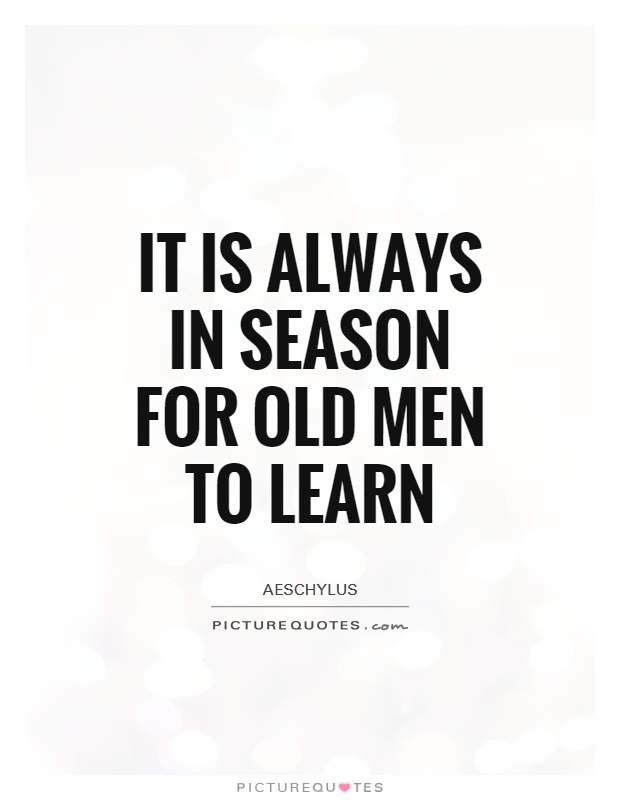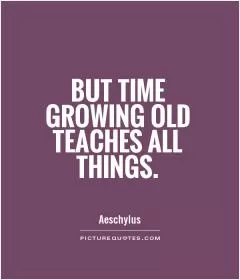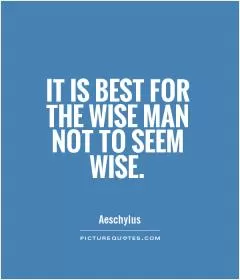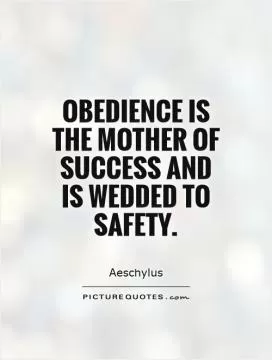It is always in season for old men to learn

It is always in season for old men to learn
In the context of Aeschylus, the statement "It is always in season for old men to learn" holds particular significance. Aeschylus, one of the great tragedians of ancient Greece, is known for his profound insights into human nature, the complexities of fate, and the consequences of hubris. His plays often explore themes of wisdom, knowledge, and the importance of learning from one's experiences.For Aeschylus, the idea that old men should continue to learn is not just a suggestion, but a fundamental truth. In his plays, we see characters who are brought low by their own ignorance or arrogance, and who must confront the consequences of their actions. These characters often come to realize too late the value of wisdom and the importance of continual learning.
One of Aeschylus' most famous plays, "Prometheus Bound," tells the story of the Titan Prometheus, who defies the gods by giving fire to humanity. As punishment, Prometheus is chained to a rock and tormented by Zeus. Despite his suffering, Prometheus remains defiant and refuses to bow to the will of the gods. Through his defiance, Prometheus embodies the idea that even in the face of adversity, one can continue to learn and grow.
Another of Aeschylus' plays, "The Oresteia," explores the cycle of violence and revenge within the House of Atreus. The characters in this play are driven by their own desires for power and vengeance, leading to a series of tragic events. Through the characters of Agamemnon, Clytemnestra, and Orestes, Aeschylus shows the destructive consequences of ignorance and the importance of learning from past mistakes.












 Friendship Quotes
Friendship Quotes Love Quotes
Love Quotes Life Quotes
Life Quotes Funny Quotes
Funny Quotes Motivational Quotes
Motivational Quotes Inspirational Quotes
Inspirational Quotes